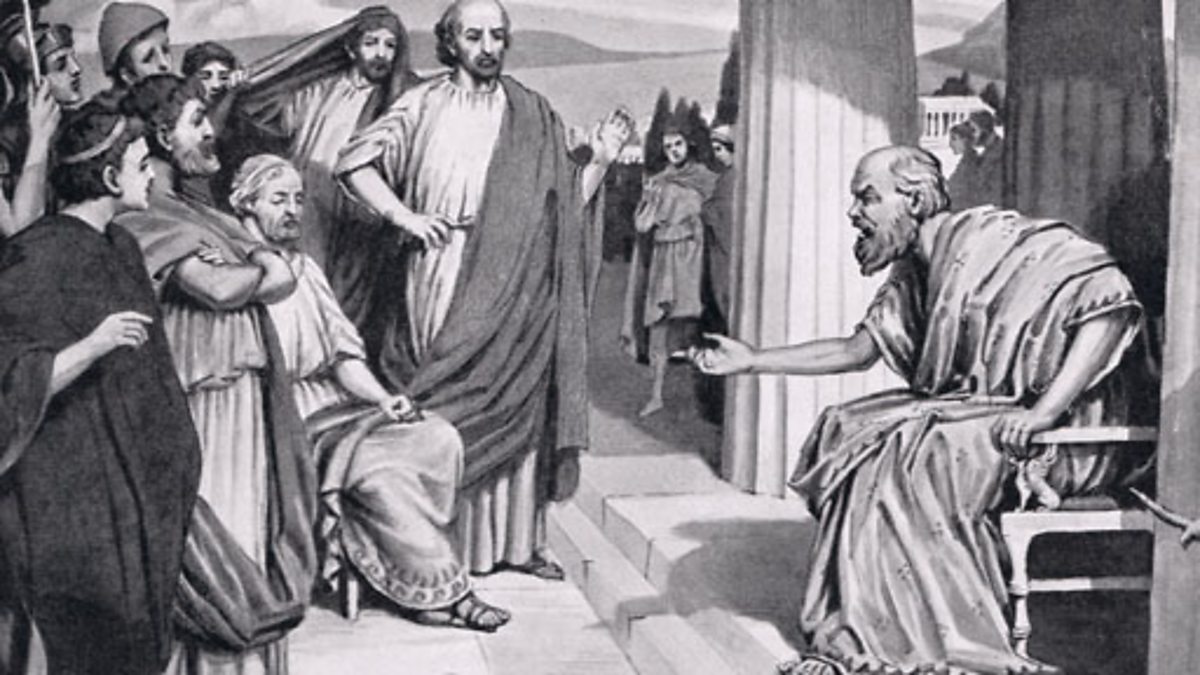


When it came time for Socrates to suggest a penalty to be imposed rather than death, he suggested he should be maintained in honor with free meals in the Prytaneum, a place reserved for heroes of the Olympic games. The speechwriter usually presented the defendant as a good man who had been wronged by a false accusation, and this is the sort of defense the court would have expected from Socrates. Instead of the defense filled with self-justification and pleas for his life, however, Socrates defied the Athenian court, proclaiming his innocence and casting himself in the role of Athens' 'gadfly' - a benefactor to them all who, at his own expense, kept them awake and aware. Lysias was among the most highly paid but, as he admired Socrates, he offered his services free of charge. Ignoring the counsel of his friends and refusing the help of the gifted speechwriter Lysias, Socrates chose to defend himself in court. There were no lawyers in ancient Athens and, instead of a solicitor, one would hire a speechwriter. As Socrates' accusers had Critias as an example of how the philosopher corrupted youth, even if they never used that evidence in court, the precedent appears to have been known to the jury. Anytus, it seems, had been grooming his son for a life in politics until the boy became interested in Socrates' teachings and abandoned political pursuits. Socrates' relationship to this regime was through his former student, Critias, who was considered to be among the worst of the tyrants and was thought to have been corrupted by Socrates. It has also been suggested, based in part on interpretations of Plato's dialogue of the Meno, that Anytus blamed Socrates for corrupting his son. It has been suggested that this charge was both personally and politically motivated as Athens was trying to purge itself of those associated with the scourge of the Thirty Tyrants of Athens who had only recently been overthrown. “Socrates is guilty, firstly, of denying the gods recognized by the state and introducing new divinities, and, secondly, of corrupting the young.” In 399 BCE Socrates was charged with impiety by Meletus the poet, Anytus the tanner, and Lycon the orator who sought the death penalty in the case. The accusation read:

In refusing to conform to the social propieties proscribed by Eusebia, Socrates angered many of the more important men of the city who could, rightly, accuse him of breaking the law by violating these customs. The Death of Socrates by Jacques-Louis David In ancient Athens, individual behavior was maintained by a concept known as 'Eusebia' which is often translated into English as 'piety' but more closely resembles 'duty' or 'loyalty to a course'.


 0 kommentar(er)
0 kommentar(er)
